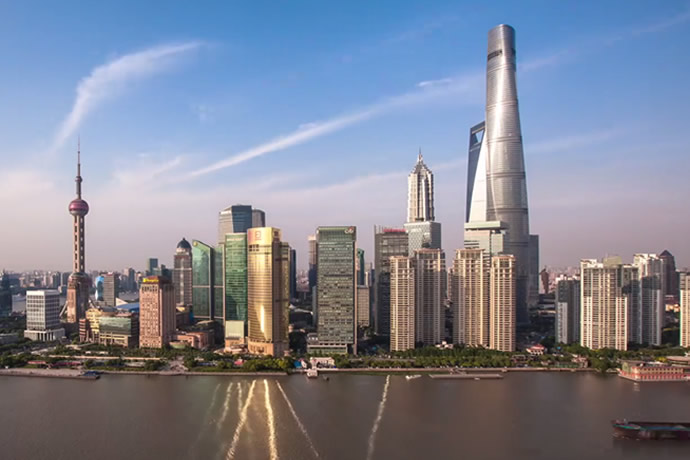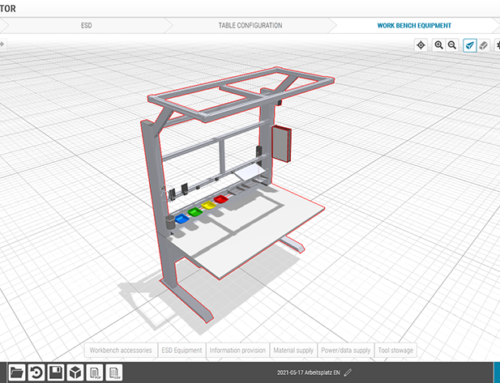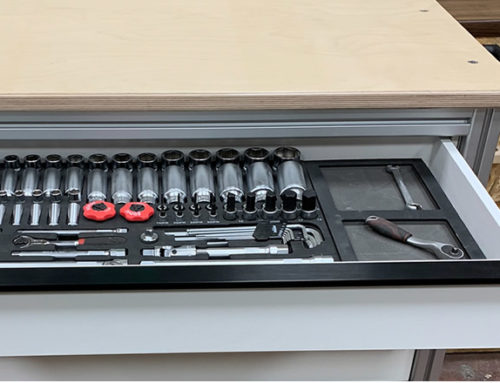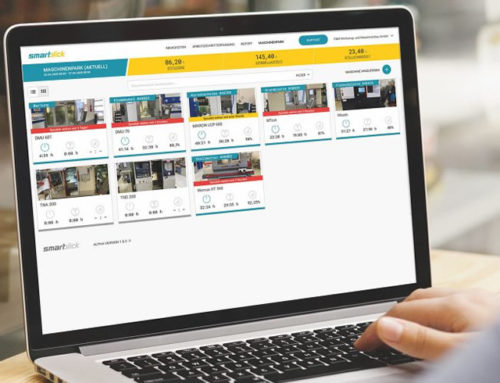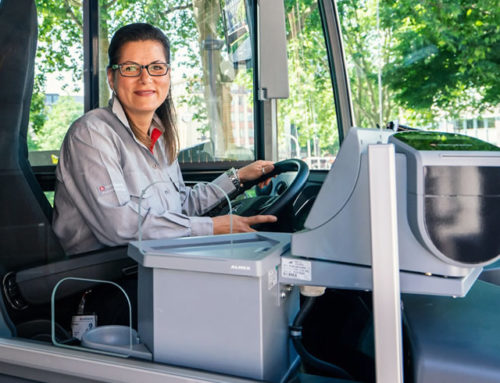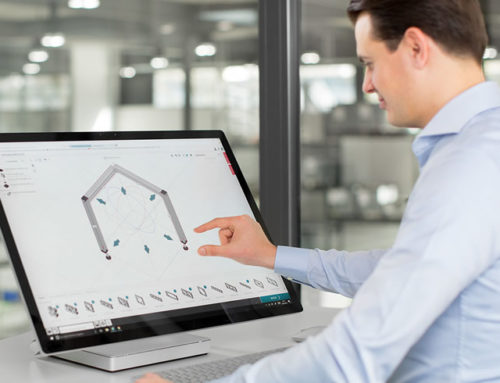Whether you’re a newcomer to the subject or want to refresh your memory, here are the key facts about the fourth industrial revolution.
These days in Germany, there are few, if any, buzz words that crop up in our sector more than “Industry 4.0”. Often, people assume that everyone knows exactly what it’s all about, and the same can be said of other popular related topics such as the “Internet of Things”. So what does it all actually mean? What are the principles at play? What kind of role do people have in all this? To answer these questions, we are looking at three aspects that we believe are essential.
1. Industry 4.0 is the next step in a long process of development
The term Industry 4.0 was first coined at the Hannover Messe trade fair in 2011. It comes from an initiative of the same name launched by the German Federal Government as part of its comprehensive High-Tech Strategy. It describes both the fourth stage in the process of industrialisation and a specific target. The previous industrial revolutions have been well documented. While the first revolution was ushered in by mechanisation (keyword: loom), the following two were triggered by mass production and the integration of computers into the production process.
So how does Industry 4.0 differ from the phase of industrialisation that preceded it? Put simply and succinctly, it is about networking – between man and machine and between different machines. The key aim is to combine two principles that are actually opposites, strictly speaking – production line manufacturing and custom manufacturing. It is also referred to as mass customisation.
2. All roads lead to the smart factory
The concept of a smart factory makes the rather abstract idea of Industry 4.0 easier to grasp. This is where the Internet of Things comes into play, i.e. non-human parties communicating with each other. That could be a plant sending out a signal that it needs new material and the smart factory automatically and independently forwarding this information. The communication between these “things” takes place through the Internet or a cloud. All the elements involved are represented by a software agent.
This resolves the problem that workpieces don’t have the technical capabilities to communicate on their own. Another area associated with the Internet of Things concerns “cyber-physical systems” (CPS), whereby the workpiece is the physical element and the software agent the digital element. Humans can still actively intervene, for example by using mobile end devices to monitor processes or change individual parameters. Although some small and medium-sized enterprises are concerned about Industry 4.0, this anxiety is unfounded, as existing plants don’t have to be replaced in most cases. Often, pre-existing plants can be fairly easily upgraded to enable IT-based communication.
3. Industry 4.0 still needs people
Given the visions of the future that Industry 4.0 promises to deliver, it’s understandable that some may at first fear for their jobs. After all, there are plenty of science-fiction movies out there to support that view. However, although these fears and others like them are understandable, they are also ultimately unjustified. Of course it goes without saying that the way we work will change in the future, but Industry 4.0 is not about replacing people with intelligent machines – on the contrary, workers will have more complex tasks to complete.
More than ever before, employees in industrial enterprises are being asked to adopt an interdisciplinary approach, make decisions quickly on their own initiative and adapt to complex processes. This will bring clear benefits to Germany as a location for business. Our country has a highly skilled workforce and will continue to be well placed in that regard. Nobody need fear their (future) robotic colleagues!
